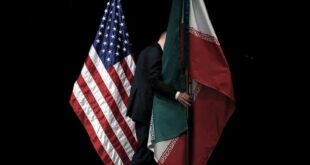 Iran is gaining influence in Latin America as the region turns away from Washington and President Mahmoud Ahmadinejad courts new allies to counter US hegemony. Venezuela’s President Hugo Chavez and other leftist leaders from Cuba to Ecuador, many of them sympathetic to Chavez’s anti-US rhetoric, have struck energy, trade and investment deals with Iran.
Iran is gaining influence in Latin America as the region turns away from Washington and President Mahmoud Ahmadinejad courts new allies to counter US hegemony. Venezuela’s President Hugo Chavez and other leftist leaders from Cuba to Ecuador, many of them sympathetic to Chavez’s anti-US rhetoric, have struck energy, trade and investment deals with Iran.
But the United States now faces relentless criticism from the Venezuela-led bloc of left-wing leaders in Latin America.
Chavez, who is pushing a self-styled socialist revolution openly opposed to Washington, has nudged his allies to do business with Ahmadinejad’s Iran.
“Since there has been no coherent United States policy toward Latin America, there’s a window of opportunity for the Iranians to come fill the vacuum,” said Riordan Roett of the Latin American Studies Program at Johns Hopkins University.
Venezuela and Iran have signed scores of accords ranging from car and tractor factories to agreements giving Tehran access to Venezuelan oil fields. Venezuela is also supplying gasoline to Iran as it struggles with domestic rationing.
“The two countries will together defeat the imperialism of North America,” a beaming Chavez said during an official visit to Iran last month.
Iran has also moved beyond Venezuela with Ahmadinejad visiting other countries in the region.
Ecuador, which has worried Wall Street with threats to halt payments on some of its foreign debt, last month signed a deal to boost investment and bilateral trade with Iran.
Nicaraguan President Daniel Ortega, who led a Marxist government in a civil war against US-backed rebels in the 1980s and returned to power this year, has secured Iranian investment in a $350 million ocean port and a $120 million hydroelectric plant to ease chronic blackouts.
Communist Cuba, which like Iran is under a US embargo, has brought in Iranian investment in infrastructure and construction projects and negotiated supply contracts to provide Iran with medical technology.
Iran’s business interests extend beyond the Chavez-led bloc. Brazil’s moderate leftist President Luiz Inacio Lula da Silva has encouraged trade with Iran and state oil company Petrobras’ oil exploration efforts there.
Analysts say some Latin American countries are seeking new alliances in part because the US government has largely ignored the region in recent years as it focuses on its alleged war against terrorism.
“Iran is trying to create a geopolitical balance with the United States,” said Bill Samii, an Iran expert with the Center for Naval Analyses in Virginia. “With US troops operating in the Persian Gulf, they’re trying to say ‘We can operate in your neck of the woods too.”‘
 Eurasia Press & News
Eurasia Press & News


